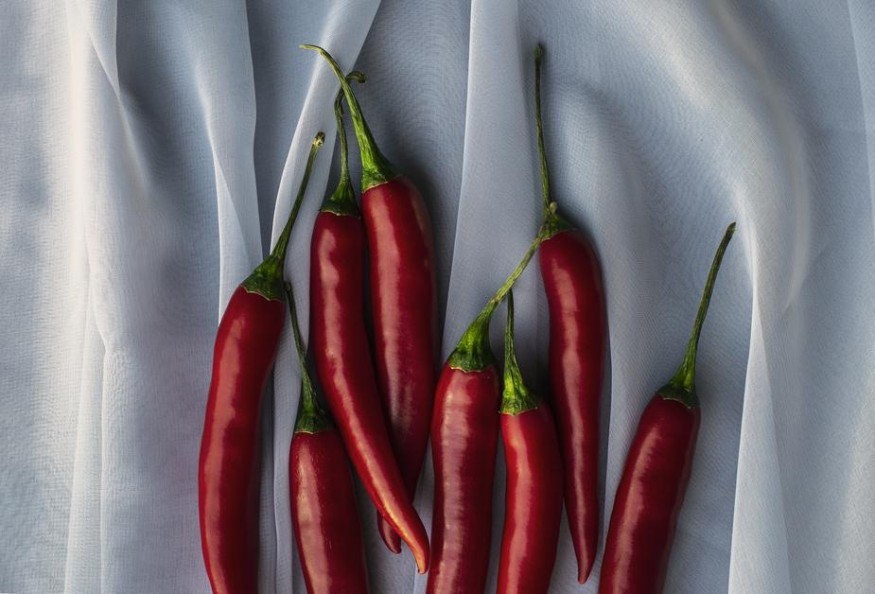
Eating chili a day makes a doctor a way, a recent study found out.
For many years, chili has been considered a plant-based medicine due to its multiple therapeutic properties, and researchers just recently approved that it can lower the risk for heart disease by 40 percent, and stroke by 50 percent, by consuming chilies at least four times a week.
For more than eight years, scientists monitored the health status and eating habits of at least 23,000 participates.
Study lead author Marialaura Bonaccio, an epidemiologist at the Mediterranean Neurological Institute (Neuromed), revealed an interesting finding that the type of diet plays no role on the mortality risk -- meaning, even if a participant does not have a healthy diet, the chili will still protect them.
According to Licia Iacoviello, director of the department of epidemiology and prevention at Neuromed and a professor at the University of Insubria in Varese, Italian ancestors have enjoyed the benefits of chili and has passed it down to succeeding generations through Italian food culture.
Although coronary heart disease is the most common cause of death in Italy, the country is among the lowest global ranking, at 163 out of 195.
The same findings were also observed in China, according to a study published by the journal BMJ in 2015. Aside from stroke and heart attack, the chili can lower the risk of dying from cancer and respiratory system diseases.
The Chinese study claimed that it is because of capsaicin, the bioactive ingredient found in chili which gives your tongue and skin a burning sensation. Aside from increasing the metabolic rate that lowers the body fat percentage, the compound can help fight infections and stimulate kidneys, lungs and heart.
For future endeavors, the study, which was published on Monday in the Journal of the American College of Cardiology, suggested investigating the mechanism which connects the chili to the lowered risk for heart problems and stroke.
The Shortcomings
Although the study was well praised for its "high-quality observational" report, experts have pointed out some of its limitations.
Dietician Duane Mellor, who is also a senior professor at Aston Medical School in the United Kingdom, pointed out the missing "causal links" that explained this finding.
And since the authors also mentioned about consuming more fresh foods and using other herbs and spices, Mellor said that the benefits might be attributed to that, rather than the chilies. Any direct effect might just be small, he also added.
Ian Johnson, a nutrition researcher at Quadram Institute Bioscience in Norwich, England, also mentioned the same observation and suggested that chilies may just have paved way to practicing other beneficial dietary or lifestyle practices that were unaccounted for.
Additionally, just like every "superfoods", consuming chili is not completely safe. For instance, spicy foods are common triggers for people with overactive bladders, according to Kristen Burns, an adult urology nurse practitioner at Johns Hopkins Hospital in Baltimore.
It can also upset your stomach -- which will make you suffer from stomach pain, diarrhea and intestinal distress -- and worsen colds.
The Chinese study was also criticized for its shortcomings, such as the absence of information about the dietary practices and lifestyles of the 20,000 participants of the study.
ALSO READ: Preventing Holiday Heart Syndrome: How to Stay Healthy During Holiday Seasons
© 2025 NatureWorldNews.com All rights reserved. Do not reproduce without permission.





